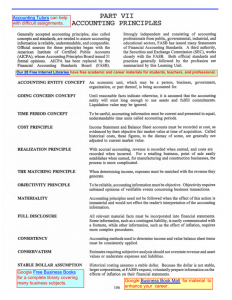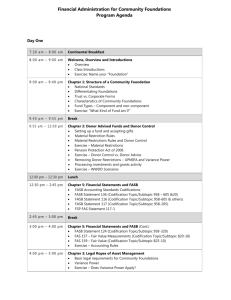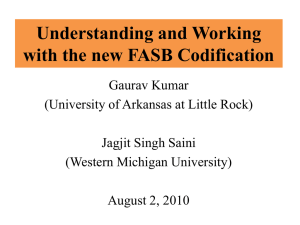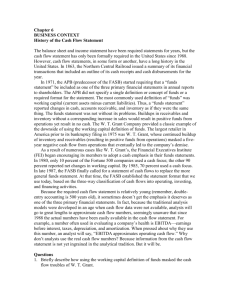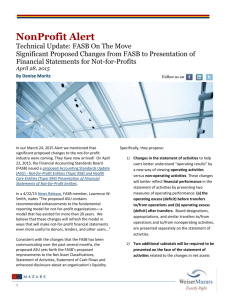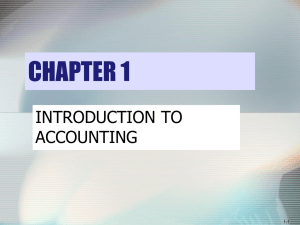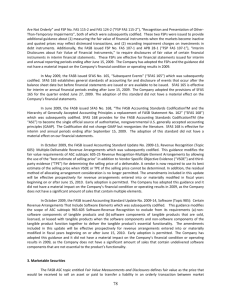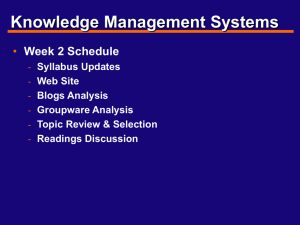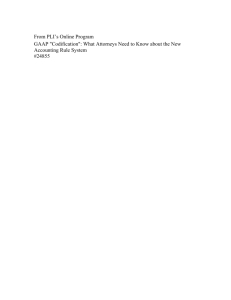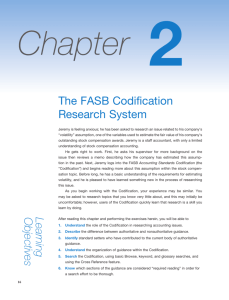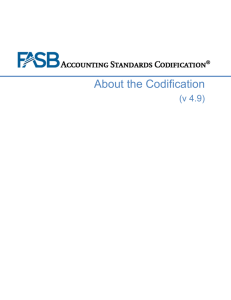FASB Launches New Accounting Standards Codification All
advertisement
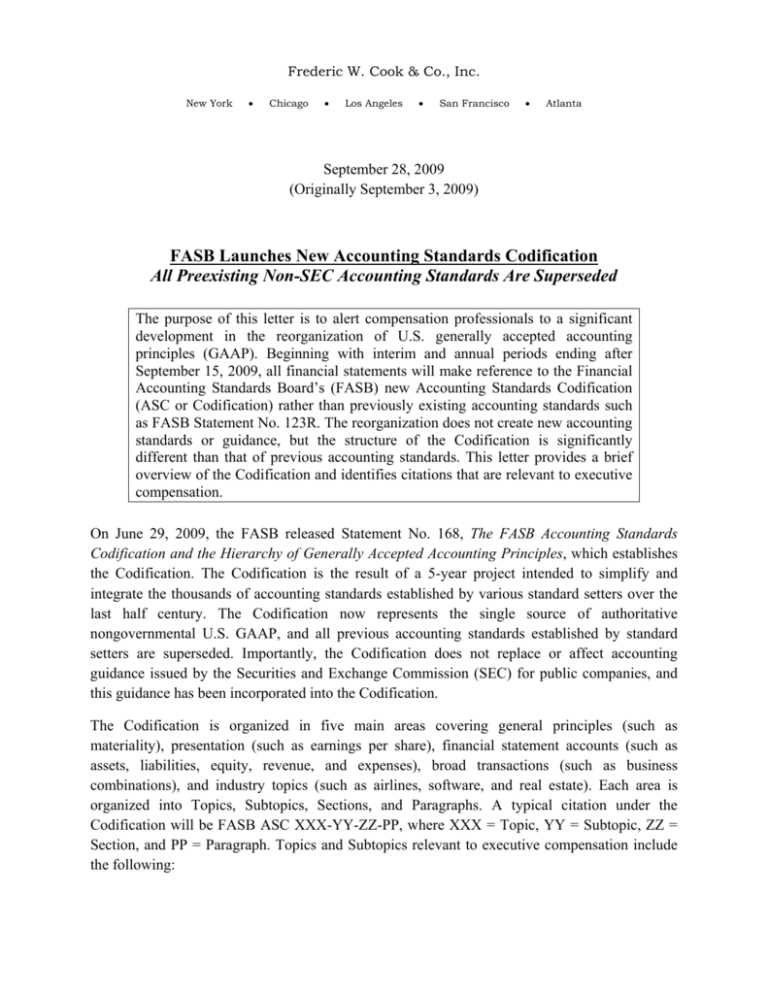
Frederic W. Cook & Co., Inc. New York • Chicago • Los Angeles • San Francisco • Atlanta September 28, 2009 (Originally September 3, 2009) FASB Launches New Accounting Standards Codification All Preexisting Non-SEC Accounting Standards Are Superseded The purpose of this letter is to alert compensation professionals to a significant development in the reorganization of U.S. generally accepted accounting principles (GAAP). Beginning with interim and annual periods ending after September 15, 2009, all financial statements will make reference to the Financial Accounting Standards Board’s (FASB) new Accounting Standards Codification (ASC or Codification) rather than previously existing accounting standards such as FASB Statement No. 123R. The reorganization does not create new accounting standards or guidance, but the structure of the Codification is significantly different than that of previous accounting standards. This letter provides a brief overview of the Codification and identifies citations that are relevant to executive compensation. On June 29, 2009, the FASB released Statement No. 168, The FASB Accounting Standards Codification and the Hierarchy of Generally Accepted Accounting Principles, which establishes the Codification. The Codification is the result of a 5-year project intended to simplify and integrate the thousands of accounting standards established by various standard setters over the last half century. The Codification now represents the single source of authoritative nongovernmental U.S. GAAP, and all previous accounting standards established by standard setters are superseded. Importantly, the Codification does not replace or affect accounting guidance issued by the Securities and Exchange Commission (SEC) for public companies, and this guidance has been incorporated into the Codification. The Codification is organized in five main areas covering general principles (such as materiality), presentation (such as earnings per share), financial statement accounts (such as assets, liabilities, equity, revenue, and expenses), broad transactions (such as business combinations), and industry topics (such as airlines, software, and real estate). Each area is organized into Topics, Subtopics, Sections, and Paragraphs. A typical citation under the Codification will be FASB ASC XXX-YY-ZZ-PP, where XXX = Topic, YY = Subtopic, ZZ = Section, and PP = Paragraph. Topics and Subtopics relevant to executive compensation include the following: Codification Cite Superseded Cite FASB ASC Topic 260 – Earnings Per Share FASB Statement No. 128 FASB ASC Topic 710 – General Compensation FASB Statement No. 43 and various EITF Issues FASB ASC Topic 712 – Nonretirement Postemployment Benefits FASB Statement Nos. 88 and 112 FASB ASC Topic 715 – Retirement Benefits FASB Statement Nos. 87, 88, 106, 132R, 158, and various EITF Issues FASB ASC Topic 718 – Stock Compensation FASB Statement No. 123R and various EITF Issues and FASB Staff Positions FASB ASC Subtopic 805-30 – Stock Compensation in Business Combinations FASB Statement No. 141R FASB ASC Subtopic 505-50 – Equity-Based Payments to Non-Employees FASB Statement No. 123R and EITF Issue No. 96-18 Going forward, the FASB will no longer issue new standards in the form of Statements, FASB Staff Positions, or Emerging Issues Task Force (EITF) Abstracts. Rather, it will issue “Accounting Standards Updates” (ASU) that will serve to update the Codification, provide background information about the guidance, and provide the bases for conclusions for the change(s) to the Codification. Accounting Standards Updates will be cited as FASB ASU YYYY-XX, where YYYY is the year issued and XX is the sequential number for each Accounting Standards Update issued that year. The Codification became available on the FASB’s website on July 1, 2009, and can be accessed via one of three views, a professional view with annual subscription fees starting at $850, an academic view that provides faculty and students with free access to the professional view, and a basic view that provides free access but more limited functionality and navigation capabilities than the professional view. * * * * * * General questions about this letter can be addressed to Thomas Haines in our Chicago office at 312-332-0910 or by email at tmhaines@fwcook.com. Copies of this letter and other related materials are available on our website at www.fwcook.com. -2-
